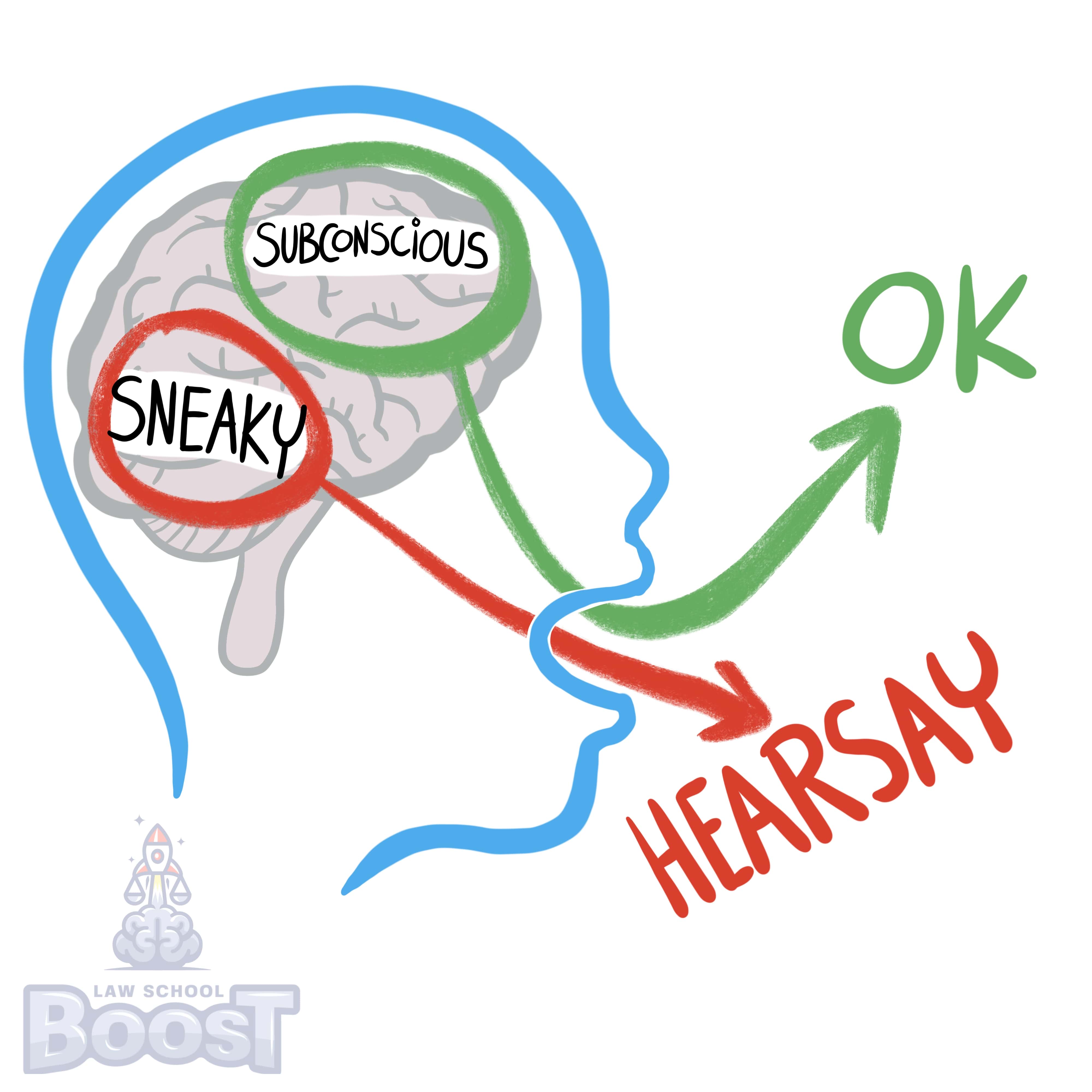🦅
Federal Evidence • Hearsay
EVID#018
Legal Definition
(1) Former Testimony
(2) Statement Against Interest
(3) Dying Declaration
(4) Statement of Personal or Family History
(5) Statement Offered Against Party Procuring Declarant's Unavailability
(2) Statement Against Interest
(3) Dying Declaration
(4) Statement of Personal or Family History
(5) Statement Offered Against Party Procuring Declarant's Unavailability
Plain English Explanation
We will be covering each of these exceptions in their own cards. What's important is this list only works if the witness who made the statement is unavailable to come into court. For simplicity, here is an overview:
(1) Previous Testimony: When a witness's past testimony is used because they can't testify now. Think of a court case from the past where a witness said something important. Now, imagine that witness can't come to the current trial. The court might use what they said before, like a replay.
(2) Statement Against Interest: When someone said something that was against their own interest. Sometimes, people say things that aren't good for them, like admitting a mistake. If they're not there to say it again, the court might still use their words because it's rare for someone to say something bad about themselves if it's not true.
(3) Dying Declaration: When a person's statement about their cause of death is used, and they can't testify because they've passed away. This one's a bit like a movie plot. If someone, sadly, is about to die and they say something about how or why they're dying, that statement can be used in court, especially if it's about who caused their death.
(4) Statement of Personal or Family History: Using statements about someone's personal or family history when they can't be present to testify. This exception covers statements about key life events such as births, marriages, and family ties. Generally, these statements are considered reliable as they're unlikely to be fabricated. However, they can only be used in court if the witness who heard them is also unavailable to testify, ensuring that firsthand accounts are preferred whenever possible.
(5) Statement Offered Against Party Procuring Declarant's Unavailability: When a statement is used against a party who made the witness unavailable. Say a person, Bob, makes a witness, Sam, unable to testify (maybe Bob threatens Sam or worse). If Sam had said something important, that statement can be used against Bob.
(1) Previous Testimony: When a witness's past testimony is used because they can't testify now. Think of a court case from the past where a witness said something important. Now, imagine that witness can't come to the current trial. The court might use what they said before, like a replay.
(2) Statement Against Interest: When someone said something that was against their own interest. Sometimes, people say things that aren't good for them, like admitting a mistake. If they're not there to say it again, the court might still use their words because it's rare for someone to say something bad about themselves if it's not true.
(3) Dying Declaration: When a person's statement about their cause of death is used, and they can't testify because they've passed away. This one's a bit like a movie plot. If someone, sadly, is about to die and they say something about how or why they're dying, that statement can be used in court, especially if it's about who caused their death.
(4) Statement of Personal or Family History: Using statements about someone's personal or family history when they can't be present to testify. This exception covers statements about key life events such as births, marriages, and family ties. Generally, these statements are considered reliable as they're unlikely to be fabricated. However, they can only be used in court if the witness who heard them is also unavailable to testify, ensuring that firsthand accounts are preferred whenever possible.
(5) Statement Offered Against Party Procuring Declarant's Unavailability: When a statement is used against a party who made the witness unavailable. Say a person, Bob, makes a witness, Sam, unable to testify (maybe Bob threatens Sam or worse). If Sam had said something important, that statement can be used against Bob.
Visual Aids

Related Concepts
What are hearsay exclusions?
What are the California-specific hearsay exceptions requiring unavailability of the witness?
What are the California-specific hearsay exceptions that don't care whether the witness is available or not?
What are the Federal hearsay exceptions that don't care whether the witness is available or not?
What are the Federal hearsay exclusions?
What is a hearsay exception?
What is hearsay?


